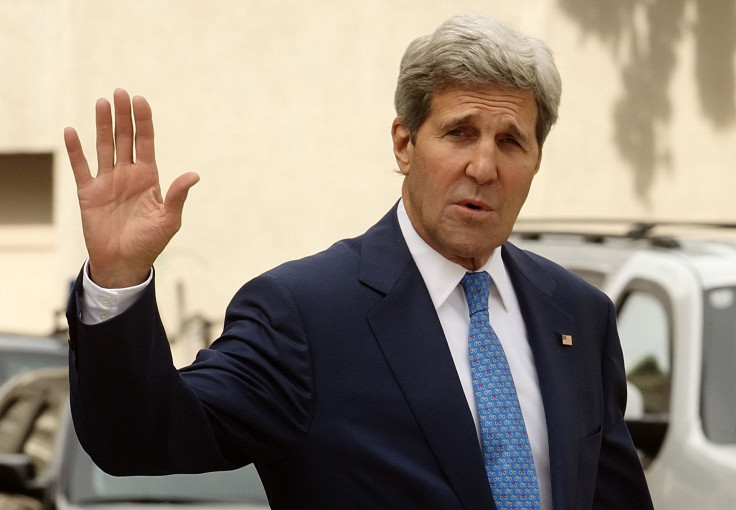Gaza Conflict: John Kerry To Travel To Cairo To Urge Hamas, Israel To Accept Cease-fire

U.S. Secretary of State John Kerry is returning to the Middle East on Monday for yet another attempt at achieving a cease-fire between Israel and Hamas in Gaza.
Kerry traveled to Cairo Monday morning to participate in ongoing diplomatic negotiations between the two combatants. He will urge Hamas to agree to a cease-fire that would bring an end to the fighting that has killed more than 500 Palestinians and 20 Israeli soldiers over the last two weeks, Associated Press reported.
Gaza experienced its deadliest day in over five years on Sunday as Israel expanded its ground offensive against Hamas. At least 140 Palestinians were killed in the fighting, while Israel Defense Forces announced that 13 members of its elite Golani Brigade were slain.
In a statement released Sunday night, State Department spokesperson Jen Psaki said that the U.S. and its allies were “deeply concerned about the risk of further escalation, and the loss of more innocent life” in the conflict. Two American citizens who fought for IDF -- Max Steinberg of California and Nissim Carmeli of Texas -- were among the dead on Sunday, Psaki confirmed.
Hamas previously rejected a cease-fire plan proposed by the Egyptian government. The organization seeks an alternate plan proposed by the governments of Qatar and Turkey, which have ties to the Muslim Brotherhood, AP reported.
Kerry has repeatedly called on Hamas to accept responsibility for their role in escalating the violence in Gaza. During an appearance on CNN’s “State of the Union,” he said that the group must “step up and show a level of reasonableness, and they need to accept the offer of a cease-fire."
“We will certainly discuss all of the issues relevant to the underlying crisis,” Kerry added, regarding his trip to Cairo.
U.N. officials in Gaza estimate that the fighting has also forced nearly 70,000 Palestinians to leave their homes. Robert Turner, the U.N.’s top official in the area, told CNN that the sheer volume of the displaced has made it difficult for his organization to provide adequate aid.
"People are scared," Turner said. "They don't feel safe at home, they don't feel safe with their families or neighbors. They feel relatively safe in our installations. ... We frankly have been overwhelmed by the numbers."
© Copyright IBTimes 2024. All rights reserved.












